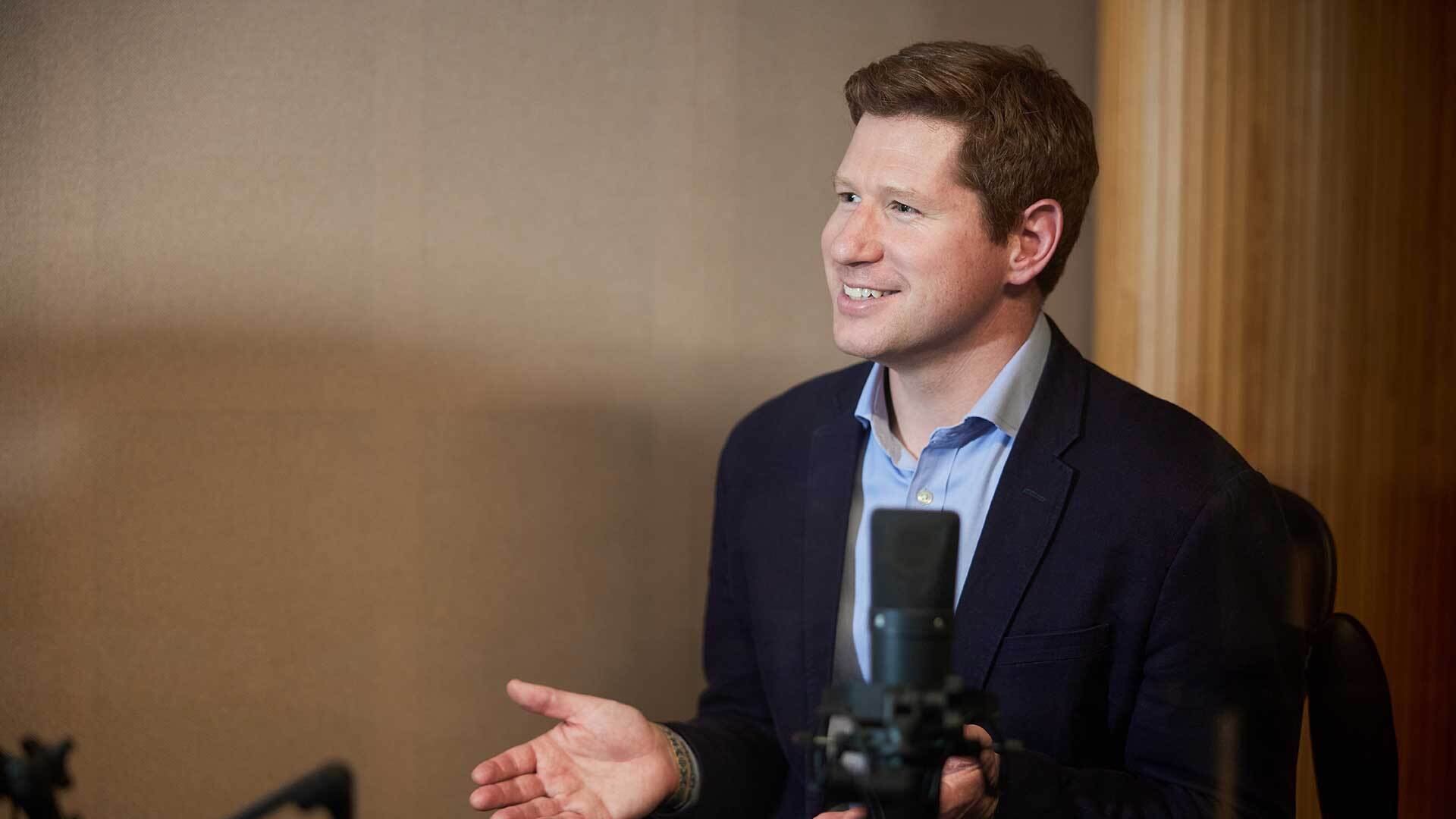Sponsor Content Created With Baillie Gifford
The ‘invisible’ millions: banking’s new frontier
From microloans for farmers to insurance for gig workers, Baillie Gifford’s Ed Whitten discusses the high-impact financial firms with great growth potential.

Capital is at risk.
Most of us take for granted our ability to borrow, send funds to loved ones and save in a secure manner. But 1.4 billion adults lack access to even basic banking services.
However, enhancing individuals' resilience to adversity could significantly improve their prospects. For example, this could involve stabilising the incomes of tuk-tuk drivers to cover periods of low demand, offering insurance to farmers to encourage investment in higher-value crops, or reducing the cost of receiving remittances from relatives working abroad.
Moreover, the scale of this challenge creates a win-win scenario: companies can profit by serving these markets today while benefiting in the long term as customers escape poverty, build businesses and develop their personal wealth.
“The goal is to provide a full service to people who were previously invisible to the banks,” Ed Whitten, an impact director in Baillie Gifford’s Positive Change Strategy, tells Baillie Gifford’s Short Briefings on Long Term Thinking podcast.
Positive Change is a dual objective strategy that aims to provide attractive returns while contributing to a more sustainable, healthy and inclusive world. Whitten’s role is to ensure the companies in its portfolio fulfil the second part of that pledge.
Fostering responsible borrowing and digital literacy
Take Grab, for example. This firm runs a popular ride-hailing and delivery app in southeast Asia and provides financial services to the gig workers who make this possible.
“For drivers, that’s loans and insurance for their vehicles and also small loans to help them over quiet periods,” Whitten explains. “For merchants, many of whom are women running corner stores or small restaurants, it’s access to working capital loans.”
Grab draws on data it gathers from workers’ use of its platform to model their risk profiles and tailor its offerings. For example, it sets a borrowing cap to ensure a user’s debt does not exceed their expected income and can automatically deduct repayments from their daily earnings.
All these efforts encourage responsible borrowing, but Whitten would like Grab to make further progress in promoting digital literacy.
“We recently raised the topic in its Jakarta office,” he says. “Grab provides some excellent online tools. But we’ve seen other companies like Bank Rakyat Indonesia do a good job of educating people and supporting them at a local level, and Grab can learn from the microfinance world.”
The innovative newcomers expanding their market share
Other companies explored in the podcast include Nubank. The Latin American lender is the biggest digital bank outside China, thanks in large part to offering a free way to save, transfer funds and own a credit card.
When Positive Change first invested in 2021, about 28% of Brazil’s adults were Nubank customers. That’s now more than doubled to nearly 60%.
Whitten also discusses Remitly, a remittance service that has made it cheaper and faster for migrants to send savings to dependants.
“It serves about eight million customers today,” he says. “And the bigger it gets, the cheaper it should be able to provide its service. That will help it take market share from Western Union and others.”
Still a place for a physical bank network
While Grab, Nubank and Remitly are digitally focused, one size doesn’t fit all, and Positive Change has also invested in India’s HDFC Bank, which is expanding its physical branch network.
“A large proportion of the Indian population is still unfamiliar with these financial services, so it’s beneficial for staff to start these vulnerable customers on their financial journey,” says Whitten. “Ultimately, most things will still move digital, but in this case, it’s great to have the presence of people speaking local languages and explaining things.”
These and other companies that Positive Change has invested in can alleviate poverty and provide a way to tap into a fastgrowing sector. While the individual sums are typically small, the number of potential customers is vast.
“Those on lower incomes will become the lucrative customers of the future,” Whitten says. “So, bringing them to a more financially healthy place makes great business sense.”
Important information
This article does not constitute, and is not subject to the protections afforded to, independent research. Baillie Gifford and its staff may have dealt in the investments concerned. The views expressed are not statements of fact and should not be considered as advice or a recommendation to buy, sell or hold a particular investment. Baillie Gifford & Co and Baillie Gifford & Co Limited are authorised and regulated by the Financial Conduct Authority (FCA). A Key Information Document is available at bailliegifford.com.
Brought to you by Baillie Gifford

Get the latest financial news, insights and expert analysis from our award-winning MoneyWeek team, to help you understand what really matters when it comes to your finances.
MoneyWeek is written by a team of experienced and award-winning journalists, plus expert columnists. As well as daily digital news and features, MoneyWeek also publishes a weekly magazine, covering investing and personal finance. From share tips, pensions, gold to practical investment tips - we provide a round-up to help you make money and keep it.
-
 Should you buy an active ETF?
Should you buy an active ETF?ETFs are often mischaracterised as passive products, but they can be a convenient way to add active management to your portfolio
-
 Power up your pension before 5 April – easy ways to save before the tax year end
Power up your pension before 5 April – easy ways to save before the tax year endWith the end of the tax year looming, pension savers currently have a window to review and maximise what’s going into their retirement funds – we look at how

